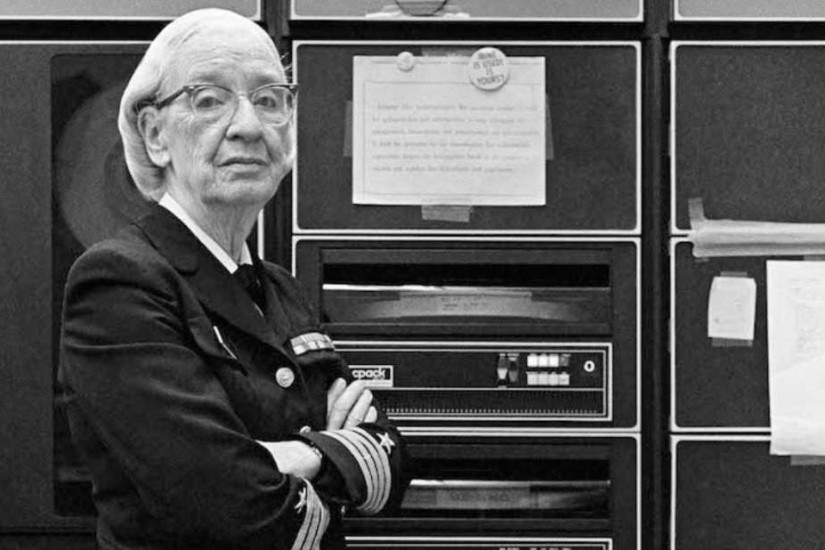For years, bolstered by an under-resourced, uncritical, or chummily compromised tech press, the tech industry comfortably shaped its own narrative. The industry’s promises, to outsiders and to itself, were idealistic and appealing: The public sphere would be democratized, barriers to education would be lowered, and daily life would become more open, efficient, and free. These narratives got some things right—and they got a lot wrong. As tech continues to make history, it seems crucial to ask what, and whom, these stories leave out.
In her book Broad Band: The Untold Story of the Women Who Made the Internet, Claire L. Evans has written about women whose contributions to computing—and computer culture—are rarely highlighted in tech-history narratives (to say nothing of today’s tech mythos). Representing various phases in technological development, they are women who had a hand in building technical tools or were early explorers of the cultural applications of nascent digital technologies. They are mathematicians and programmers, academics and early-web personalities.
By Evans’s telling, what they all share is a focus on the capacity for computers to “enrich human life.” Broad Band is not a book about the business of tech; in terms of influence and impact on the industry, the importance of the women featured may be slightly overstated. What the book’s subjects do represent is the importance of the user—the person logging on at home, rather than the startup guru—in shaping digital worlds. This inverse history is welcome, especially at a time when the internet economy tends to reward owners more than participants: The founders and employees of companies like Yelp and Facebook, for example, have made millions, while the users who generate the content their platforms rely on remain unpaid. It’s also a reminder, bittersweet, that the internet used to be a bit freer, and more fun, in no small part due to the work—both seen and unseen—of women.
